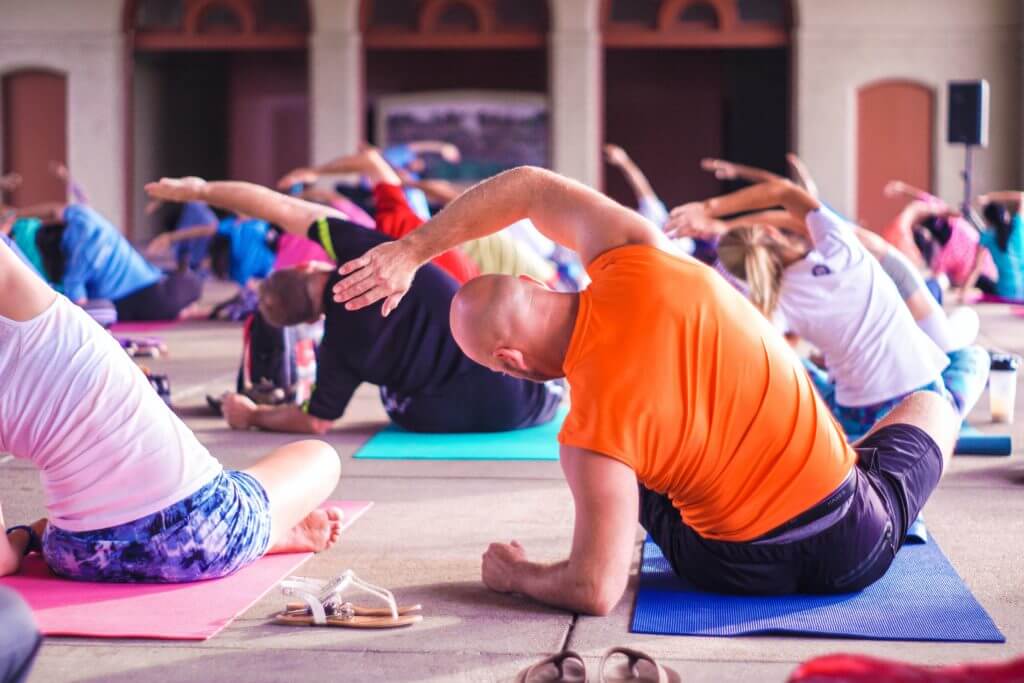
Woman doing yoga in athletic clothing (Photo by Carl Barcelo on Unsplash)
BOSTON — Hot yoga can sound intimidating to beginners, but new research suggests consistently breaking a sweat in the yoga studio may help reduce symptoms of depression in a major way. Scientists at Massachusetts General Hospital put together a randomized controlled clinical trial featuring adults diagnosed with moderate-to-severe depression, with those participating in heated yoga sessions noting significantly greater drops in their depressive symptoms.
All in all, study authors say their findings, at the very least, strongly suggest that heated yoga could be a viable treatment option for patients with depression. Over the course of eight weeks, a total of 80 participants were part of two random groups; an experimental cohort that received 90-minute sessions of Bikram yoga taking place in a 105°F room, and a second group placed on a waitlist (these participants completed the yoga intervention after a specific period of time). In all, 33 participants in the yoga cohort and another 32 placed in the waitlist group took part in the study.
Those in the intervention group had to attend at least two yoga classes weekly. Overall, participants in this cohort attended an average of 10.3 classes over eight weeks. After that two-month period, yoga participants showed a notably greater reduction in depressive symptoms than waitlisted participants. Importantly, depressive symptoms were evaluated using the clinician-rated Inventory of Depressive Symptomatology (IDS-CR) scale.

Meanwhile, the research team also reports that 59.3 percent of yoga participants had a 50-percent or greater decrease in symptoms (compared to just 6.3% of waitlist participants). Also, 44 percent of those in the yoga group achieved such low IDS-CR scores that their depression was technically “in remission,” compared with 6.3 percent among the waitlist group.
Even participants who only attended about half of their intended “dose” of yoga sessions reported depressive symptom relief, suggesting that just one heated yoga session weekly can help as well.
“Yoga and heat-based interventions could potentially change the course for treatment for patients with depression by providing a non-medication–based approach with additional physical benefits as a bonus,” says lead author Maren Nyer, PhD, director of Yoga Studies at the Depression Clinical and Research Program at Massachusetts General Hospital and an assistant professor of Psychiatry at Harvard Medical School, in a media release.
“We are currently developing new studies with the goal of determining the specific contributions of each element—heat and yoga—to the clinical effects we have observed in depression.”
It's also worth noting that participants tended to rate the heated yoga sessions positively, and no serious adverse side-effects were seen in conjunction with the yoga intervention.
“Future research is needed to compare heated to nonheated yoga for depression to explore whether heat has benefits over and above that of yoga for the treatment of depression, especially given the promising evidence for whole body hyperthermia as a treatment for major depressive disorder,” concludes senior author David Mischoulon, MD, PhD, Director, Depression Clinical and Research Program at Massachusetts General Hospital.
The study is published in the Journal of Clinical Psychiatry.










